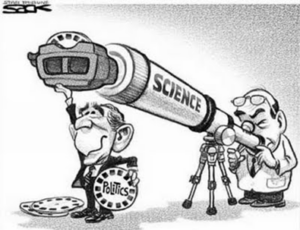
On the 26th of October 26th, the Association of Climate Realists in Sweden will organize a climate conference in Mölndal. We start Saturday at 12 with lunch. The conference ends Sunday at. 15. The theme of the conference is ”Science and Politics”
The conference hotel is Scandic Mölndal and is located just south of Gothenburg:
https://www.scandichotels.com/hotels/sweden/gothenburg/scandic-molndal
You book and pay your accommodation, which is available at the hotel if desired, yourself. Please book your room and register to the conference September 27 at the latest. Contact the hotel through email or phone for the best price as a conference guest.
Last date for registration is the 20th of October. Your registration fee (1200 SEK) covers two lunches and coffe in between. If you want to take part in the conference dinner, ad 450 SEK. See below.
Message from the hotel
Book a hotel room at Scandic Mölndal by going to the hotel’s website www.scandichotels.se/ and enter code BKLI261024 in the booking code field.
The prices are discounted and the code is valid for accommodation between October 26-October 27. The last day of booking is September 27, 2024 at the latest and there is free rebooking and cancellation until 18:00 local time on the day of arrival.
The booking must be guaranteed by card at the time of booking, but payment is made at the hotel. In case of late cancellation or no-show, the hotel has the right to charge 100% of the booking price.
Breakfast buffet included.
You can also book a hotel room by calling our central reservation 08-517 517 00 and entering the code BKLI261024
Registration and payment
The conference fee is SEK 1200 and it covers the conference itself as well as two lunches and coffee during the conference. The fee for conference dinner is SEK 450 and can be added if desired.
To register, pay the amount to the account indicated below, and send an email to red@klimatupplysningen.se with your name. For the registration to be valid, both payment and email must have been received by us. (This does not apply for speakers.)
Swedish bank account is bankgironr 403-9277, or swish 1233 079415 (only in Sweden)
Participants from abroad:
Iban-nummer: SE0650000000052011120314
SEB:s Bic-kod: ESSESESS
Adress till SEB:
SEB
106 40 Stockholm
Program:
Day one 26 October
12.00 – 13.00 Lunch
13.00 – 13.30 Ingemar Nordin (Sv) The role of science in politics. The philosophical formulation is that “Is does not imply ought” (Hume). No politics including values can be inferred from scientific facts alone. Therefore the scientific contribution to politics is only critical. However, scientific statements are often used as the sole basis for ideology and politics. Climate politics is a typical example.
13.30 – 14.15 Eva Marie Brekkestö (No) The rise and fall of civilizations in a climate perspective. During the last 6,000 years, various civilizations have arisen and disappeared around the world, under the clear influence of climatic variations. Abrupt changes in the climatic conditions have often triggered. migrations and the development of new cultures. The prevailing picture, however, is that civilizations have flourished during the warm periods and declined when the climate has cooled.
14.15 – 15.00 Sören Hansen (Dk) The Danish Energy Transition. Denmark has set ambitious goals for CO₂-emission reductions and wishes to play the role of front-runner in the World. However, in reality the results are not so impressive and the transition is running into serious difficulties.
15.00 – 15.30 Fika (coffee break)
15.30 -16.15 Benny Peiser (UK) Political realism: A pragmatic alternative to Net Zero dogmatism
As the rising cost of Europe’s unilateral climate and renewable energy policies are hitting households and businesses ever harder, most countries’ social fabric and economic competitiveness faces severe risks. Across Europe, policy makers are beginning to consider how to slow down, revise and roll back some of the damaging and most unpopular Net Zero plans. In this talk, I will consider what alternative policy options governments have in order to ensure a level playing field and that climate policies are economically, socially and politically sustainable in the long run.
16.15 – 17.00 KarI Iver Dahl-Madsen (Dk) Climate Change and Global Food Production: A Minimal Impact Perspective
This presentation explores the relationship between climate change and global food production, arguing that the influence of climate change on food production is minimal compared to other factors. The primary driver of food production is the increasing demand for food as populations grow and wealth increases. A secondary yet crucial factor is the ongoing technological advancement in the agricultural industry, which continually enhances yield per unit of land. Climate change may marginally affect production costs, but its impact is likely positive due to increased warmth, rainfall, and higher CO2 levels, which boost agricultural productivity. The global food supply faces no significant risk from climate change, with many more critical factors influencing food production.
18.00 Conference dinner with a talk by Sverre Höstmark about freedom of speech on the internet.
Day two 27 October
09-00 – 09.45 Jan Erik Solheim (No) The Journal of Science of Climate change (SCC) – the three first years.
SCC was initiated by the Climate Realists in Norway in the summer of 2020. The first issue appeared in August 2021 and has now existed in 3 years and produced 11 issues. The objective of this journal was and is, to publish – different to many other journals – also peer reviewed scientific contributions, which contradict the often very unilateral climate hypotheses of the IPCC and thus, to open the view to alternative interpretations of climate change. I will tell about the ideas behind the journal, the startup difficulties, and how we managed to publish more than 100 papers, consisting of origiginal articles, review papers, essays, conference abstracts, obituaries, comments and discussions. I will also mention some important papers from the 3 first years, related to the scientific method, properties of the Earth’s atmosphere, the carbon cycle, the dynamic Earth and the greening of our planet thanks to increasing CO2. Our horizon is full international recognition in 10 years.
09.45 – 10.30 Olav Martin Kvalheim (No) A strategy for winning the climate war
The only way to rip the Climate suicide cult for their destructive power is to develop a strategy to influence the voters in elections. And since most voters do not have a strong understanding of scientific models and discussions, we have to turn our focus to the destructive outcome of the climate policy inferred by the Climate church and get the message out to the people. This will be the focus of this talk.
10.30 – 11.00 Fika (coffee break)
11.00 – 11.45 Anders Bolling (Sv) Alarmism bias in the media. The media constantly gets the climate science facts wrong, and almost always leans towards alarm. Why? A few clues:
- Mainstream media is a part of the establishment
- There is a journalistic addiction to drama (negativity bias)
- Climate is complex, and citing secondary sources is easier than digging into papers
- Many journalists feel that questioning the alarmists is morally wrong
11.45 – 12.45 Lunch
12.45 – 13.30 Geir Aaslid (No) Climate Science versus Politics. ”Climate Science versus Politics” takes a closer look at the IPCC science, from the excellent First Assessment Report in 1990 and downhill to the latest Sixth Report with it’s claim that we’ve had no natural climate change since the pre-industrial era. We take a closer look at the 2010 IAC critical evaluation of IPCC, as well as some of the pseudo-science supporting the climate crisis narrative.
13.30 – 14.15 Marcel Crok (Nl) Do we have to win the climate debate in court? In The Netherlands, the birthplace of activist climate litigation, a novel counter-response has emerged. Clintel is leading the efforts. Clintel’s director, Marcel Crok will explain what is happening.
After the Dutch Supreme Court’s ruling in the famous Urgenda climate case, climate litigation mushroomed and currently more than 2000 climate lawsuits are pending worldwide. Crok will discuss the climate movement’s strategy in mitigation cases and expose the weaknesses of the arguments most commonly used in these climate lawsuits.
14.15 – 15.00. Magnus Cederlöf (Sv) What we can learn from Uppsala long temperature record. This session will cover how bad placements of measurement stations in Uppsala creates a warming trend which does not represent the surrounding countryside. When instead using a better placed station, all (or almost all) warming can be explained by natural factors.
The End
———————————–
About the speakers:
Geir Aaslid, economist and serial entrepreneur. Editor at Klimarealistene (Norway) since 2014.
Eva Marie Brekkestö
Eva Marie Brekkestø, a social studies and language teacher with and a long-standing interest in history, has over the years become increasingly aware of how climate variations throughout history have affected people and society. In her lecture she looks at how the rise and fall of civilizations have been closely linked to changes in the climate.
Anders Bolling:
I am a freelance journalist, a writer and a podcaster, based in Stockholm, Sweden. I worked as a reporter and an editor at Sweden’s largest daily Dagens Nyheter for almost 25 years. I have published six books, the latest being Professionell klimatbevakning (Professional climate coverage).
Marcel Crok
Marcel Crok studied physical chemistry in Leiden and after university he became a science journalist. Since 2005 he specialised in the climate debate, wrote a Dutch book about it and analysed several IPCC reports. He co-founded Clintel in 2019 together with emeritus professor Guus Berkhout. Clintel’s World Climate Declaration is now signed by over 1900 scientists and experts from around the world.
KarI Iver Dahl-Madsen
Karl Iver Dahl-Madsen is a consulting engineer from Copenhagen, Denmark, with a diverse background in environmental science, aquaculture, and business strategy. He has developed expertise in aquatic ecosystem modeling, aquaculture innovation, and strategic business development. He founded Dahl-Madsen ApS, a consulting company specializing in food production, energy, and environmental policy. Karl Iver has a track record of leadership, serving as Chairman for Klimarealisme and Byportaler.dk, among other roles. His work spans multiple industries, from fish farming to local media, with a strong focus on innovative technologies.
Sören Hansen
Chemical engineer, MSc. Author and editor of the web page Klimarealisme.dk.
Ingemar Nordin
Ingemar Nordin is prof. emeritus at Linköping University. His basic studies are in mathematics and physics. He later switched to philosophy of science, especially the philosophy of quantum mechanics. He worked as a professor of philosophy until his retirement. He is the chief editor of the blog Klimatupplysningen and a member of the scientific board.
Olav Martin Kvalheim
Kvalheim is prof. emeritus in chemistry at the University of Bergen. He started his career in quantum chemistry and spectroscopy in 1976 but changed to data analysis and modelling in 1981. He took the degree of dr. philos. in 1987 and became professor in 1992. He has published more than 200 papers in refereed journals and has won several awards: Award from The Nansen foundation for his dr. philos. thesis in 1988, the Norwegian research council prize for outstanding use of research in 1996, the Herman Wold Gold medal in 2005 from the Swedish Chemical Society, Gold medal for invention in Geneva 2012 and the Eastern analytical symposium award in 2013. His interest in climate science was initiated from the controversy about the Hockey stick graph and he has been active in the climate debate for 20 years.
Benny Peiser
Dr. Benny Peiser is the director of the Global Warming Policy Foundation. The London-based, non-partisan organisation is one of the world’s leading climate and energy policy think tanks. The GWPF regularly publishes reports and papers on the economic, social and societal risks of unilateral climate policies.
Jan-Erik Solheim
Jan-Erik Solheim is professor emeritus from UiT The Arctic University of Norway, Tromsø, Norway. His research field is observational astrophysics and he worked with cosmology, galaxies and pulsating stars. He was responsible for planning, building and running Skibotn Observatory, Norway 1971-2002 and participated in planning the Nordic Optical Telescope at La Palma, Canary Islands, Spain. After retirement he has worked with planets-Sun-climate relations. He was chief editor or the international scientific journal Science of Climate Change 2022-23.
Magnus Cederlöf
Magnus Cederlöf has been a regular writer at the Swedish blog Klimatupplysningen for about 10 years. During these years he has focused on analysis of different temperature records. This job resulted in a scientific paper published in 2016 together with Lennart Bengtsson.
Ingemar Nordin, for the board of Klimatrealisterna
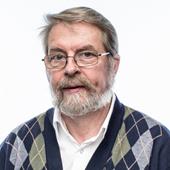
Professor emeritus i filosofi. Forskningsinriktning är vetenskapsteori, teknikfilosofi och politisk filosofi. Huvudredaktör för Klimatupplysningen.



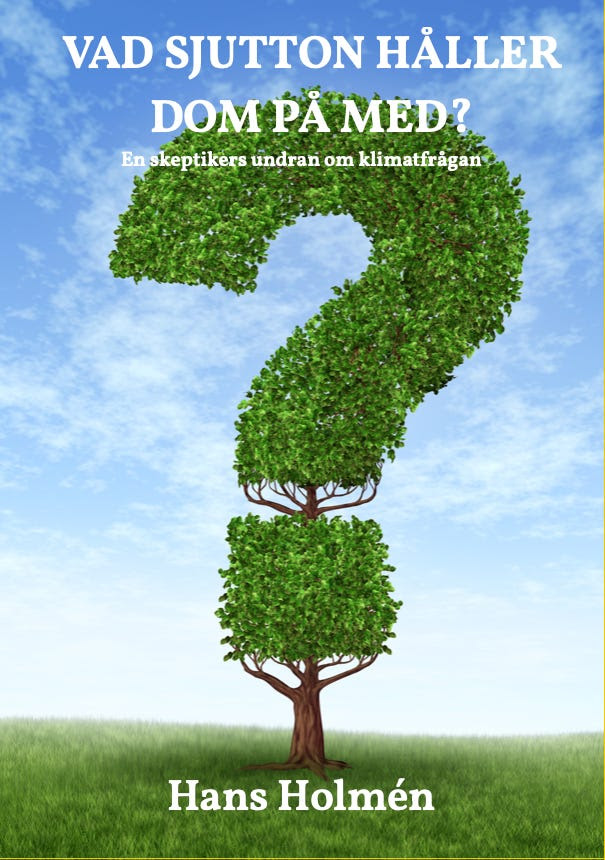
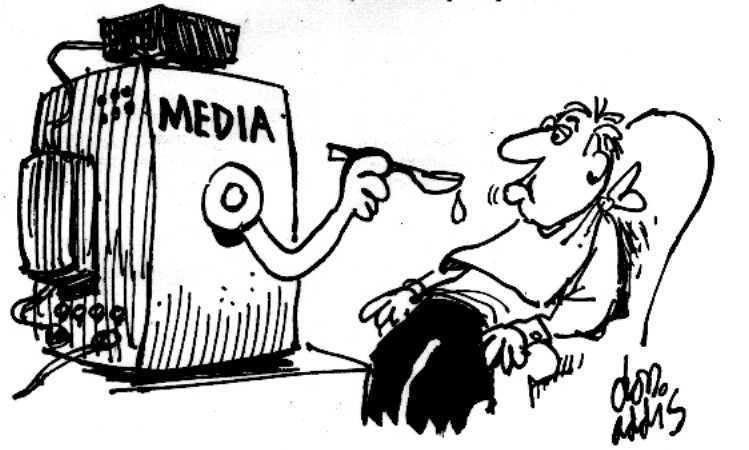
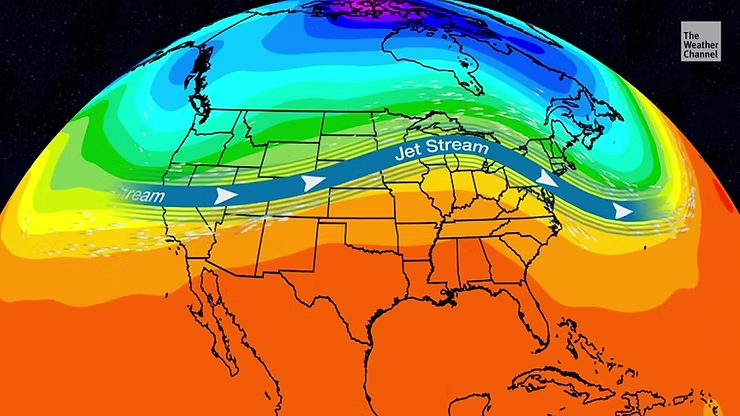
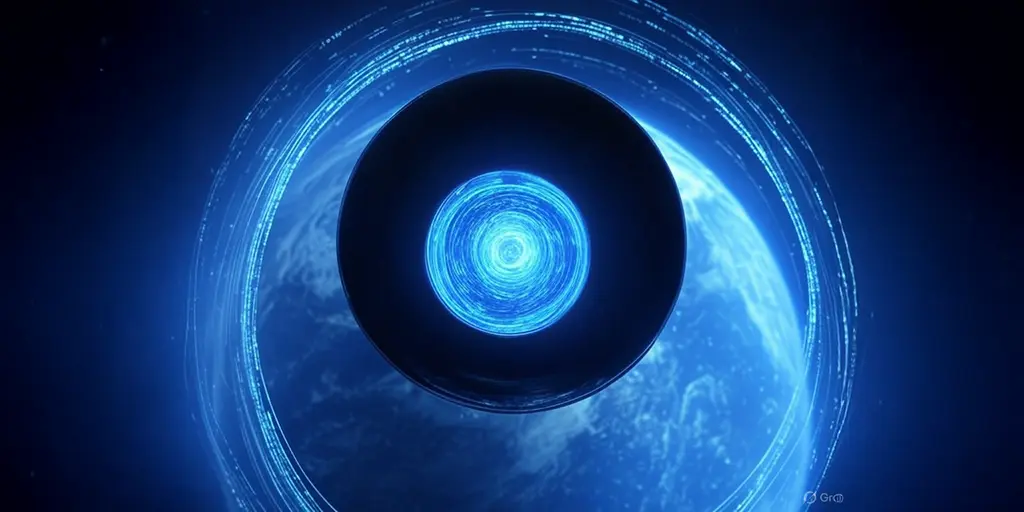

Många tunga vinklingar som kan ge nytt liv åt debatten.
Hej alla KU-läsare. Jag hoppas att så många som möjigt tar chansen och anmäler sig till konferensen.
Jag har en efterlysning. Är det någon här som har videoutrustning och som har lust att spela in alla föredragen på video? Föreningen som sådan har inte en sådan utrustning, men det skulle vara kul att dokumentera allt i videosnuttar som sedan kan läggas ut på bloggen. Kontakta mig på ingemar.nordin@liu.se
Varför redovisar inte politiska partier och MSM allmänheten om “Summit of the future”, FN:s framtidsvision?
En framtida värld där demokrati och frihet riskerar att ersättas med, teknokratisk dystopi!
Summit of the Future
“Summit of the Future” är en FN-initiativ som syftar till att adressera globala utmaningar och skapa en vision för framtiden där demokrati, mänskliga rättigheter och hållbar utveckling står i fokus. Det handlar om att samla världens ledare för att diskutera hur man kan hantera frågor som klimatförändringar, ojämlikhet och teknologisk utveckling.
På grund av dess framtida betydelse för mänskligheten förstår jag inte varför politiska partier och mainstream media (MSM), inte ger detta ämne den uppmärksamhet som den förtjänar?
“Summit of the future”, ett toppmöte om framtiden som hålls den 22–23 september i år. Mötet handlar om hur FN:s medlemsstater ska gå tillväga för att uppnå de många mål som har satts upp, däribland de som beskrivs i Agenda 2030.
I dag vågar jag påstå att allmänheten inte alls är informerad om vad detta innebär och dess potentiella konsekvenser. Utan en grundläggande förståelse av ämnet är det osannolikt att medborgarna kommer att kräva mer information från sina politiska representanter eller medierna. Jag tror också att det skulle finnas ett motstånd och oro bland flera grupper angående övergången från demokratiska system till teknokratiska strukturer där beslut fattas av experter snarare än folkvalda representanter. Denna rädsla kan kanske leda till motstånd mot diskussioner kring sådana initiativ, särskilt om de uppfattas hota demokratin eller mänskliga rättigheter.
MSM tenderar att rapportera om händelser som har högt nyhetsvärde eller som nu engagerar befolkningen starkt. Om “Summit of the Future” uppfattas som en abstrakt eller långsiktig fråga utan omedelbara konsekvenser, kanske medierna välja att inte täcka det överhuvudtaget. Är det så att konkurrensen om uppmärksamhet från andra nyheter, såsom politiska skandaler eller ekonomiska kriser gör det svårt för sådana globala initiativ, att få den nödvändiga synligheten?
Varför är våra politiska partierna och dess företrädare nu knäpptysta?
https://www.un.org/en/summit-of-the-future
Mvh,
Finns en galning som kommenterar på klimatsans som heter Thomas P som på fullt allvar inte verkar förstå att CO2 är nödvändigt för växt och djurlivets bestånd? Men det visar väl på graden av faktaresistans i alarmistkretsar som måste anses vara en fara för allmänheten? När ska folk vakna och inse vad de sysslar med?
Ingmar det behövs ingen speciell utrustning för att filma bara någon eller några som vill och som har en smartphone eller surfplatta.
Kvaliteten på moderna mobilkameror är så bra att de är i klass med rena filmkameror, har man sen ett stativ (inte nödvändigt) så har man den utrustning som behövs för att föreviga konferensen.